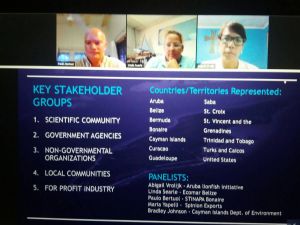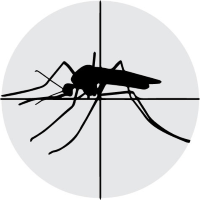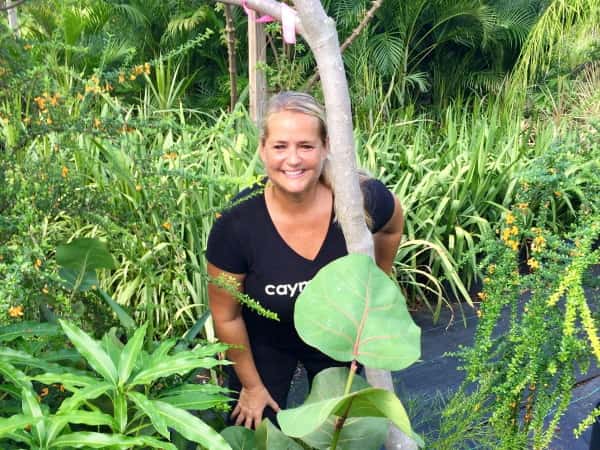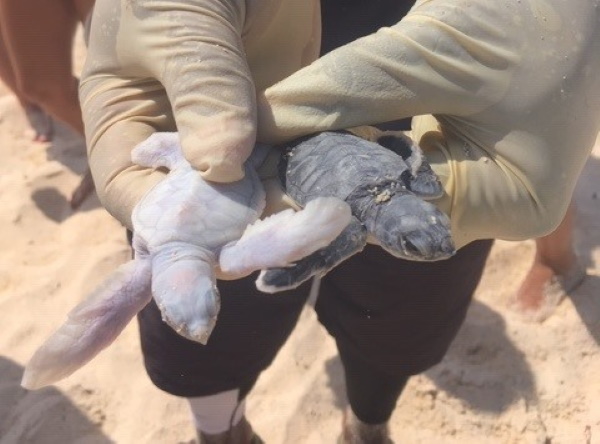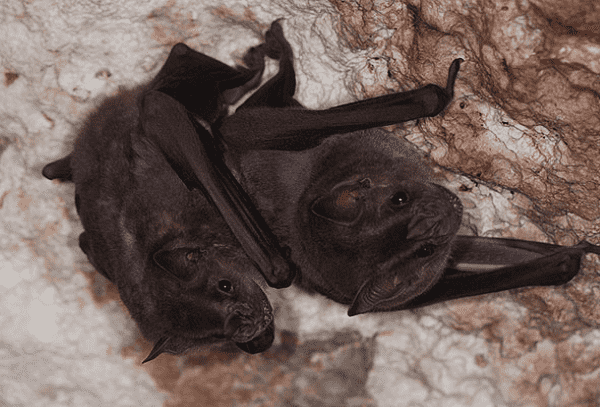(CNS Local Life): The Central Caribbean Research Institute (CCMI) recently hosted a first-of-its-kind workshop and webinar dedicated to sharing information across the region on how to manage the threat posed by the invasive lionfish. The session, “Bridging the Gap to Improve Lionfish Management”, aimed to move the issue from a local level to one that is managed consistently throughout the Caribbean.
CCMI president and director of research Dr Carrie Manfrino and Dr Gretchen Goodbody-Gringley, assistant scientist at Bermuda Institute of Ocean Sciences (BIOS) led the discussion for the 44 participants, stated a CCMI press release. Of those who took part in 19 April workshop, 17 attended in person at the National Gallery of the Cayman Islands, with another 27 logged in to access the session by webinar.
“We were thrilled to co-facilitate (cohost) this dialogue with BIOS and to have input from the Cayman Islands Department of Environment and Spinion Exports as well as panellists from Aruba, Bonaire, and Belize, representing attendees from 14 countries and territories throughout the Caribbean,” said Manfrino.
Stakeholders who took part comprised scientists, dive operators, community members, commercial fisheries, government entities and non-profits. Participants shared their experiences in lionfish management and best practices as well as asked questions of others who may be facing similar challenges in controlling lionfish population in their local coral reef ecosystems.
Having taken an important first step with establishing a communication network between stakeholders across the Caribbean, participants now look to continue dialogue through a forum where information can be easily shared among the region’s stakeholders, stated the press release.
“A benefit of bringing this group together now is to open the dialogue about how shared information increase our management effectiveness,” said Manfrino. “We can help each other by sharing information that happens on a local level to see the larger picture of regional trends. With that information in one place, we can work on further best practices and more effective use of resources to control the lionfish population.”
Immediately following the lionfish workshop/webinar, Dr Claire Dell presented “Reef Vegetarians: Who They Are and Why They Matter” to an audience of 62 attendees. As the primary researcher on this project, Dell will be tagging herbivores in 2018 to determine their movements and range to measure the extent of their potential impact toward reducing algae, a vital part of maintaining healthy coral reefs.
The workshop was supported by the European Union’s BEST 2.0, the Darwin Initiative, the Guy Harvey Ocean Foundation and the National Gallery.
For more information about CCMI’s research projects as well as other upcoming International Year of the Reef events, go to the institute’s website or Facebook page

